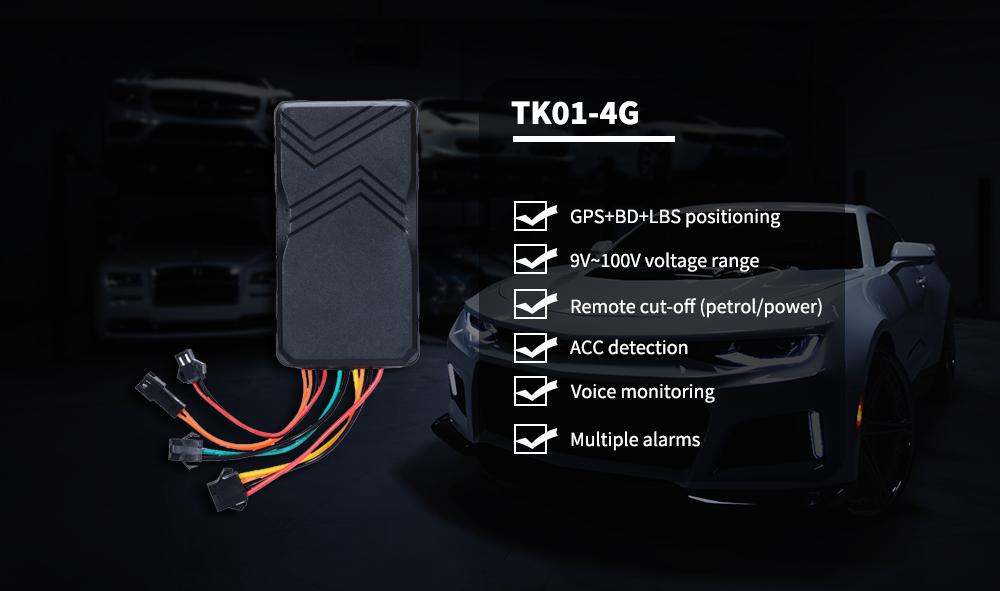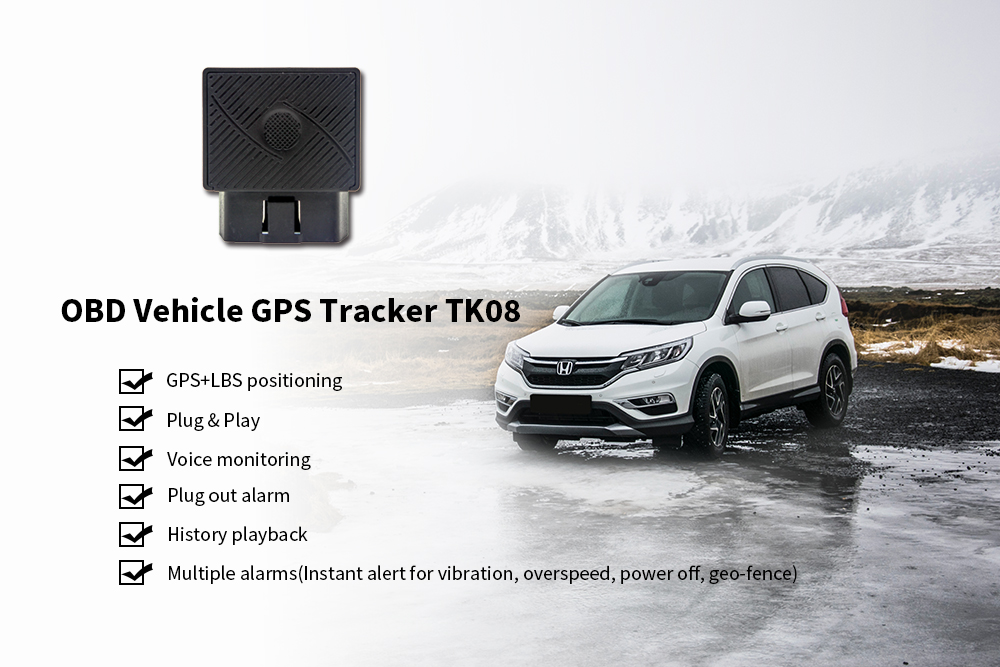

The fleet management industry is facing significant changes in 2020. The global fleet management industry will grow from $15.9 billion to $31.5 billion by 2023. A large driver of this growth is the ongoing need to improve operational efficiency to speed up delivery times and move more business. Solutions and trends, including the leap to the 5G network, telematics and tracking, Mobility-as-a-Service (MaaS), automation, and cybersecurity are playing a large role in reducing operational costs for fleet managers and owners.
What is a fleet GPS tracker?
A fleet GPS tracker is an IoT device that allows a fleet to monitor the vital signs of an asset such as location, speed, idling, engine and battery health, plus driving trends. These small telematics devices, also sometimes referred to as black boxes, plug into the OBD II port of a vehicle or can be connected with a harness if needed.
GPS tracking software
GPS tracking devices work in tandem with fleet management software. A fleet manager, safety officer, or even a maintenance manager can monitor and report on vehicle or driving trends from this fleet dashboard.

What do GPS trackers do?
In addition to helping track the location of a vehicle, GPS trackers plus a telematics platform help fleets:
Increase productivity
Improve fuel efficiency
Operate more safely
Strength regulatory compliance
Find better, faster routes
Increase uptime
Support customer service
Here’s a closer look at the benefits of fleet management GPS tracker to prove it:
Better Fuel Economy
Fuel costs are among the single biggest expenses a fleet pays – as much as 40% of a trucking fleet’s budget, according to the Environmental Defense Fund – which means reducing them can result in huge savings. While the actual per-gallon cost of fuel is out of your hands, you can reduce the number of gallons used per trip in a variety of ways when using GPS tracker to the fullest extent.
How? First, GPS tracking system that handles routing and dispatch can help find the shortest path in real-time, accounting for weather and traffic that might otherwise burn extra fuel. Second, most fleet management systems can log idling time, too, allowing managers to curb excessive idling. Rest-stop idling alone accounts for up to 1 billion gallons annually, the Argonne National Laboratory found in 2015.
Finally, thanks to wind resistance, speeding has been proven to burn more fuel. GPS tracker that tracks instances of speeding, and driver scorecards that can help aid in, can help save even more fuel and funds. Overall, savings from optimal fuel use alone can be as much as 30% per vehicle, annually.
Route optimization
Some routing planning does not include any traffic models when calculating how long it will take to get from point A to point B. GPS tracking system can give detailed information about traffic at various times of the day and days of the week and also indicate the direction of traffic movement. Having information on traffic patterns and bottlenecks can help the fleet find better, faster routes for its drivers which increases productivity.
Better Driver Safety
Tracking and addressing driving habits like speeding and harsh braking won’t just save fuel – it will also promote safety, creating a healthier environment for a trucking fleet and lowering the chance of a catastrophic collision.
Driving habits that a fleet manager can keep tabs on, also include seatbelt usage, rate of acceleration, and how sharply the vehicle turns a corner. The data adds up over time, so managers can easily compile a weekly or monthly report of driving trends, to better understand their fleet’s strengths and weaknesses.
Habit-tracking isn’t the only way fleet management software can promote safety. Most systems can also issue automated notifications by SMS or email, which will let managers know when each vehicle needs preventative maintenance. Some can even notify managers of recent safety recalls automatically, ensuring the fleet cuts down on the chances of equipment failure.
Theft Deterrence
It’s a serious concern for commercial fleets, as even a temporary loss of a vehicle can lead to a meaningful loss of income.
GPS tracker allows a company to establish geofences, which alert the manager if any vehicle moves beyond a set geographic region. It’s an easy way to learn immediately when a vehicle is in an unauthorized area and can help identify theft right away. And, with GPS-enabled location tracking, the vehicle can be quickly recovered for minimal inefficiencies.
After-hours use of vehicles can be monitored through fleet management software as well, letting operations know when a driver might be driving without authorization. While not material theft, this type of misuse still qualifies as theft of resources. It certainly shouldn’t be overlooked, but remains tough to trace without a system that can report on a vehicle’s engine status in real-time.

Conclusion
Whether you are a large or small fleet or even an owner-operator, GPS tracking provides many benefits.


